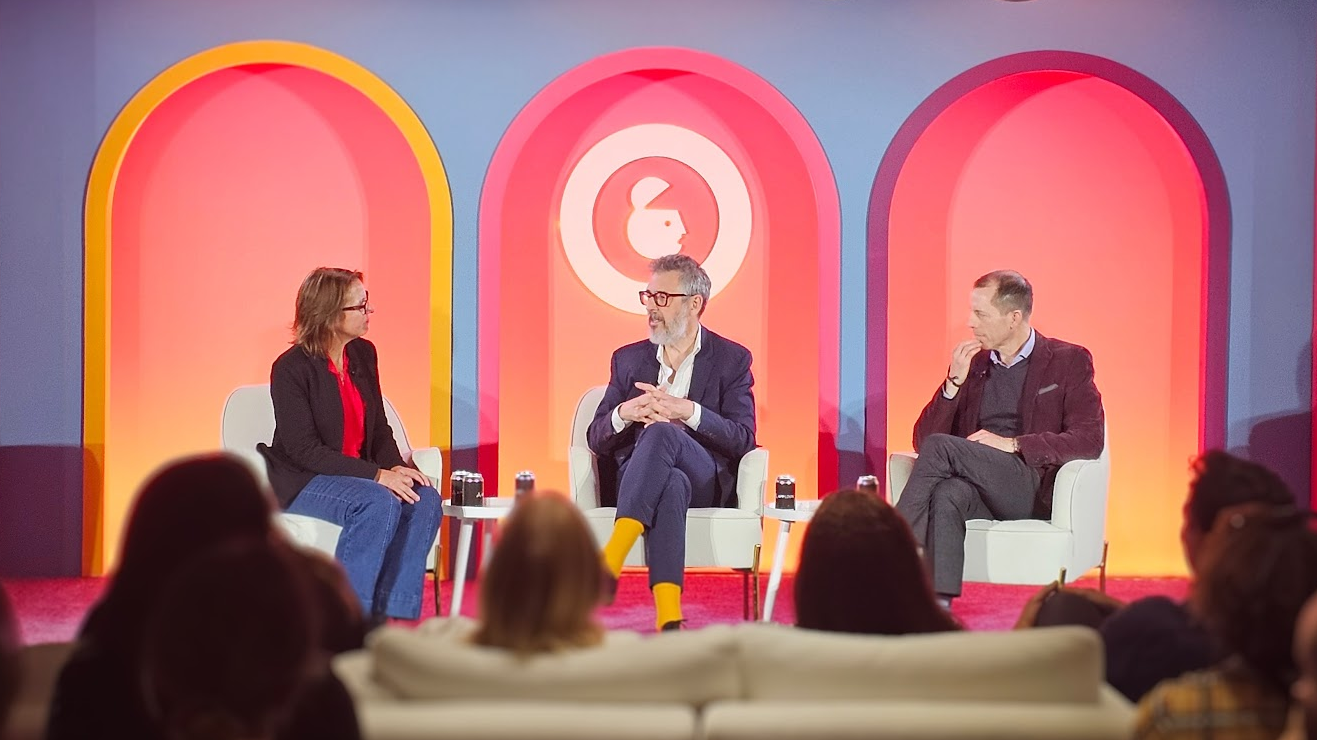
A Podcast Host and a Sales Manager Walk into a Bar…
It sounds like the beginning of a bad joke. But when one of the most renowned podcast hosts ever and an NPR sponsorship luminary walked into Advertising Week NY this past Wednesday to a packed room, it ended up being 30 minutes of fantastic insight. And some solid humor too.
SoundStack CRO Rockie Thomas sat down with Scott Davis, SVP, NPR Sponsorship, and Ira Glass, creator and host of This American Life, to discuss, by and large, business “lanes.” Specifically, to what degree does a podcast/radio host of a Pulitzer Prize-winning show – one that set the course for modern audio storytelling -- concern himself with the business mechanics of podcasting? And by that same token, how much do sales leaders invest their time in the story? Does it matter?
The answer that emerged from the panel discussion was, in both cases, “a lot.”
“Hosts actually have no choice but to get involved in the business side. I was responsible for bringing in the money,” Ira said. As great, unique storytelling is the primary driver of millions of listeners, the power of those stories needs to be clearly imparted to business teams so that they, in turn, can effectively convey it to sponsors. “Only the creator can explain that to a salesperson,” he said.
Each with long histories in radio, Rockie, Scott, and Ira discussed how much things have changed. “Back in the day, there used to be a much bigger separation between sales and show creation,” Ira continued. Those kinds of disconnects, among other things, made it harder for hosts to know that their vision was being delivered effectively. “If I had my way, I would’ve been on way more sales calls,” he exclaimed.
Scott weighed in from the other side of the coin: “The more storytelling a salesperson can do, the better.” As an NPR / NPM sales leader for over 26 years, he understands what keeps great brands tied to NPR: trust. For Scott’s teams, that trust starts with reinforcing that NPR is always going to deliver the most compelling stories for listeners, and proving it by being able to relay what makes each story great – uniqueness, emotional arc, and so much more.
The conversation then turned to mechanics and how each panelist looks at the use of technology and data in podcasting. In some cases, it’s fundamental.
“Dynamic ad insertion (DAI), for example, was a game changer for us,” Scott said. That technology, which automatically serves a podcast ad at the time of download or stream, as opposed to being “baked in” ahead of time, creates tremendous operational efficiency.
Of course, no panel would be complete without some discussion of the subject du jour, AI. Everyone agreed that it can help in certain, more functional aspects of the business. But when it came back to the essence of the conversation – the power of effective storytelling – Ira was very clear: “AI is never going to take our jobs. When we get to a point where the robots can create an emotional arc, that’s fine, they can have them!”
“I keep trying to be like a modern person with AI, and it’s just not that helpful,” he said.
Ira had a similar take on the use of data in podcasting. In short, it depends on which end of podcasting you’re using it for. “Hosts of course want to know how shows are performing,” he said. That’s the role of reliable data. But when it comes to the development of stories for This American Life, he was again very clear: “our stories are never driven by data – it plays no role at all.”
The show’s millions of listeners aren’t tuning in to be fed back what they expect or what they've reacted to in the past. They’re tuning in for something new – what they haven't heard or thought about before, what will surprise them. It again comes back to unique, great storytelling.
When Rockie capped things off, asking what about podcasting and radio excites each panelist the most, everyone focused on another form of uniqueness – that of audio itself. “In a visually cluttered world, audio has no competitors,” Rockie began.
“Audio is with us all the time,” Scott said. “Just look around the subway and see all of those people with headphones on.” Ira continued: “there’s an intimacy to actually not seeing something as you’re listening. I love Howard Stern, but I'd rather just listen to what he’s saying to me than be distracted by the visual. Audio is a very personal medium. Even for us, when we’re recording our program, though we are in fact broadcasting to millions of people around the world, we’re alone in a dark studio. It’s like we’re talking to one person.”
In an age when it’s easy to keep moving toward the next enhancement (think, for example, of the push toward video podcasting), their answer was refreshingly grounded.
Video of the full discussion is coming soon. Stay tuned!
Photo credit: Pete Jimison